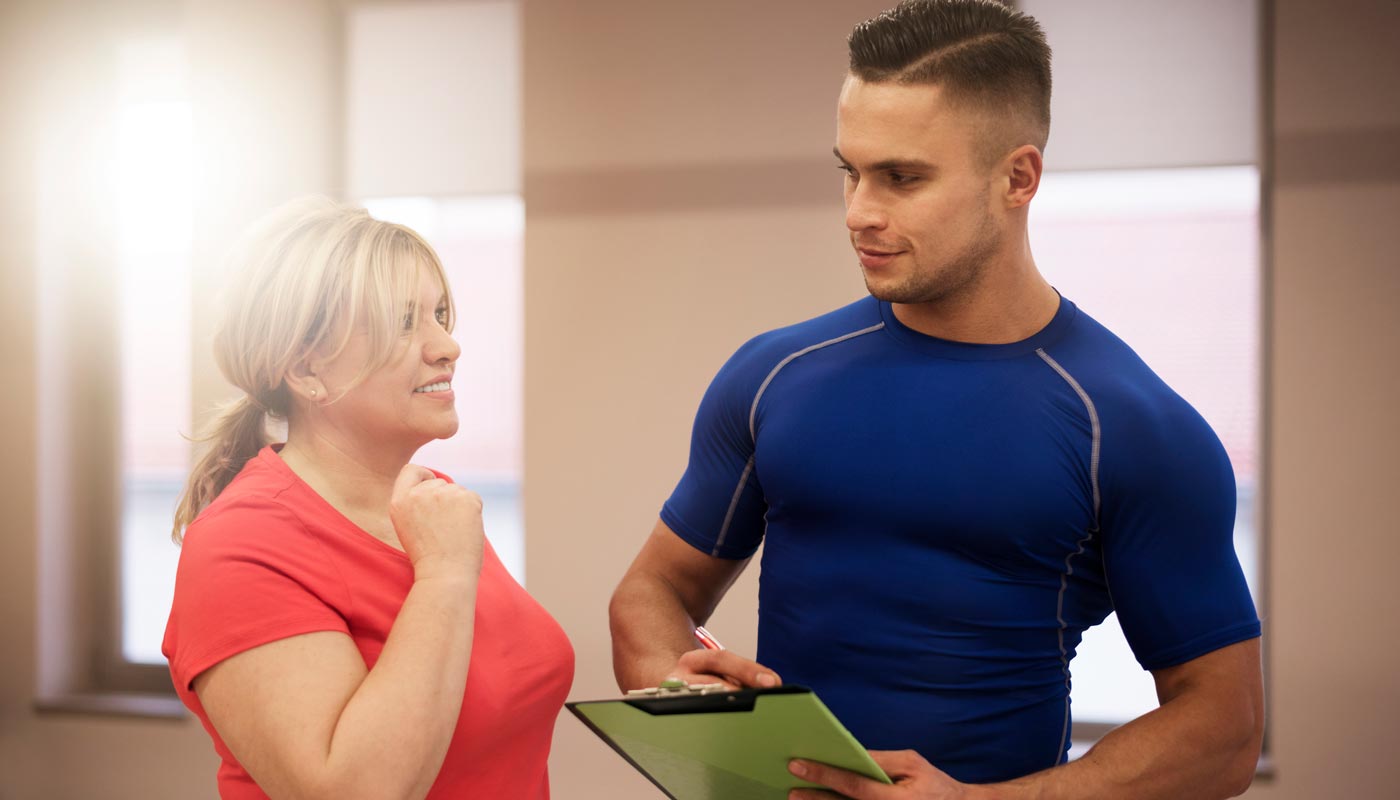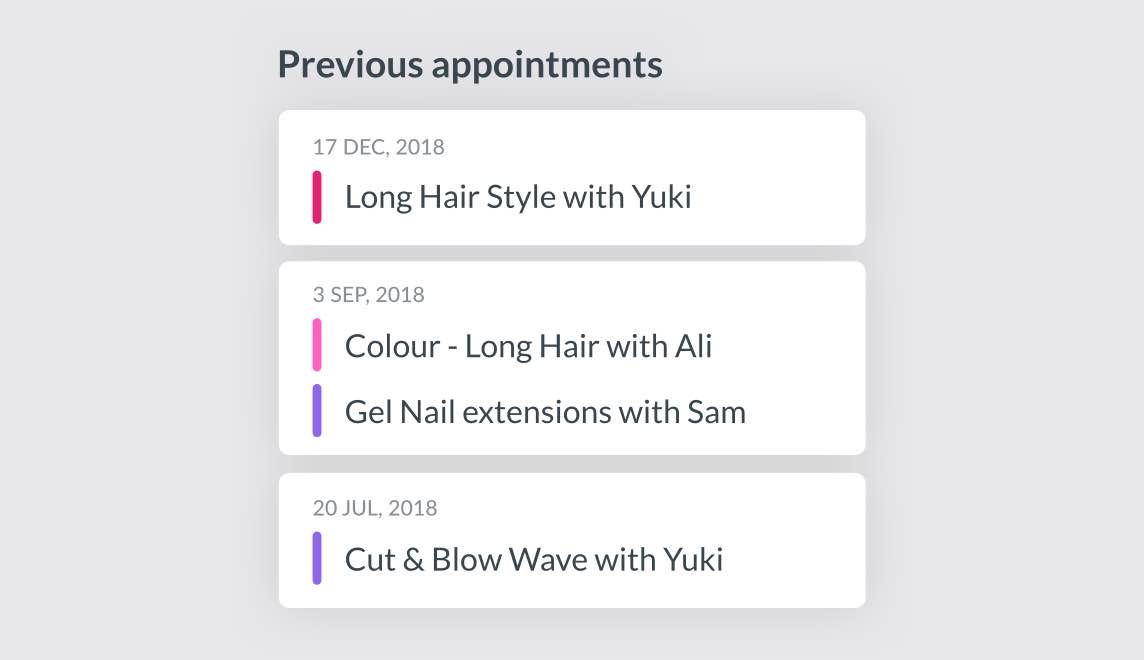How to handle nutrition questions from fitness clients

Say you’re a personal trainer. You’ve studied and practiced to get where you are, and now you’re finally building up your client base. And then it starts – the nutrition questions. What’s a personal trainer to do?
Gyms, health-clubs and fitness groups are popping up all over the place. But not all of these groups are sending the right message, nor do they all have the education to support their work safely.
Many ‘health professionals’ can get certificates through online courses. Some of them take only 24 hours to complete. Then voila! They can call themselves nutritionists.
It’s concerning that anyone can offer fitness and nutrition advice with little to no training or study.
Not only does it devalue the education of nutritionists and dietitians, it places an enormous pressure on personal trainers, as clients start to have unrealistic expectations about what they’ll receive during training.
No wonder people are confused about nutrition, exercise and health.
The dangers of social media
As an exercise professional, you’ll often get asked about the latest diet or healthy eating regime. With social media now being so prominent in the fitness industry, people can easily get a false sense of what it means to be healthy.
People use the athletes and personal trainers on social media to set the standard of how they want to look or perform.
Your job is to make sure your clients know what’s really going on in those accounts. Fitness professionals on social media often spend all day training. They know their angles. Looking or performing a certain way is how they make their money! It shouldn’t be your clients’ end goal.
Athletes and aesthetic models often talk about their latest diet; it may include a carbohydrate restriction, or they may be dairy free and/or gluten free. ‘Diets’ often cut out major food groups which are detrimental to general health and wellbeing.
If your client is talking about a diet that sounds severely restricted or specific, and it’s not related to an individual food allergy or issue, you can usually assume it’s a fad diet and not beneficial for the majority of people.
Gunning for change
It’s common for someone to start their first 2 weeks of a ‘healthy’ life and change everything.
The addition of exercise, on top of any recently introduced food restrictions, can create large and unhealthy calorie deficits. This does more harm than good. It not only reduces energy for everyday activities (like work, chores and socialising) but creates hormone disturbances which increase stress and illness. With this, you have a ‘crash and burn’ effect.
This crash and burn effect automatically creates negativity around exercise and good nutrition. People start thinking “this is not good for me”. And they’re partially right! But it’s not all doom and gloom.
Focus on the journey
You will have heard the story about the Tortoise and the Hare – slow and steady wins the race.
This is exactly how you have to approach nutrition.
Exercise and health is a journey, not a race.
Often people will come to a personal trainer saying ‘I need to lose weight by X date’. This puts a lot of pressure on you to help them achieve this goal.
This is where you need to remind your client that changing their health is a gradual process. If your client’s diet is something that is really affecting their results, or their goals, refer them to a qualified (and experienced) dietitian or nutritionist. From here you can work together to create positive, and safe, outcomes for your client.
Referring them to a professional means that you know you’re doing right by your client – and yourself. You studied to be a personal trainer. Why accept the pressure of acting as a nutritionist just to fulfil people’s expectations?
Focusing on the training means your client gets the most out of their time with you.
So what’s the best way to handle fitness nutrition questions?
It’s important to remember that when people dramatically change their diets, and opt for a ‘quick fix’, they’ll end up in a worse physical and mental state than when they started. Baby steps are safer and will still get you there in the end.
Here are a few key points to bear in mind when giving nutritional advice as a personal trainer. Remember – there is no ‘one size fits all’ approach.
- Praise
Notice the fact they’ve asked about nutrition and commend the client on that. It’s a minor detail but can have a positive impact on their motivation to make a change. - Evaluate
Make sure they’re ready for an intervention. If they’re struggling to commit to the gym and exercise, are they really ready to make nutritional changes, or should they wait a bit longer? - Advise cautiously
There’s general nutrition advice you can offer. Here you should to stick to government recommendations as these are based on clinical evidence by dietitians. Put simply, people should eat naturally high fibre grains, low-fat dairy, lots of fruit and vegetables, and avoid sugary and processed foods etc. It may seem simple, but many have lost sight of the basics amongst the hordes of advice out there.Visit your local government health organisation for your country-specific recommendations. - Educate
Emphasise the importance of a healthy diet, rather than ‘clean eating’. Getting obsessive about diet can cause further complications. Encourage people to reduce takeaways, fizzy drinks and poor snacks to better complement their training and help them meet their goals. - Encourage eating
Eating after working out is crucial – it’s part of your client’s recovery. You’re dealing with people who are probably increasing their training loads, and will probably have sore muscles. Here you need to become familiar with post-exercise nutrition (note: this does not mean supplements). The general rule of thumb is to eat within 30 minutes of training, as this is the time when your muscles are craving food. This is a meal that combines protein and carbohydrates to aid muscle recovery – nothing special, just good food. This can include sandwiches, smoothies, tuna and cracker or a main meal (the list goes on). - Don’t go too deep
Remain within your scope of knowledge. Only give advice on what you know, don’t go beyond what you’re qualified to discuss. If someone asks you a complicated nutrition question, don’t feel obligated to answer! Just let them know that you’re unsure and pass them on to someone who has that knowledge. This will help protect your client, but most importantly yourself. - Understand the supplements
The supplement industry is growing just as fast as the fitness industry, and it can be very hard to stay on top of. I would advise caution. Supplements are expensive, and are not always necessary – especially when a client may just need a better tailored, and nutritionally-rich diet instead. Treat supplements as ‘sprinkles’ for an already nourishing diet.
Finally, start talking!
Build up your network with dietitians or nutrition experts (with credentials from a well-known institution) and learn from them. Create relationships where you can work together; refer clients to one another, and build a foundation where you’re able to change people’s lives.
Clients will get the best exercise and nutrition advice. They will recommend you to their friends and colleges, and before you know it – you will become a sought-after personal trainer.
Just remember, people are often undoing years of poor habits. So treat these changes as a journey – not a race.

